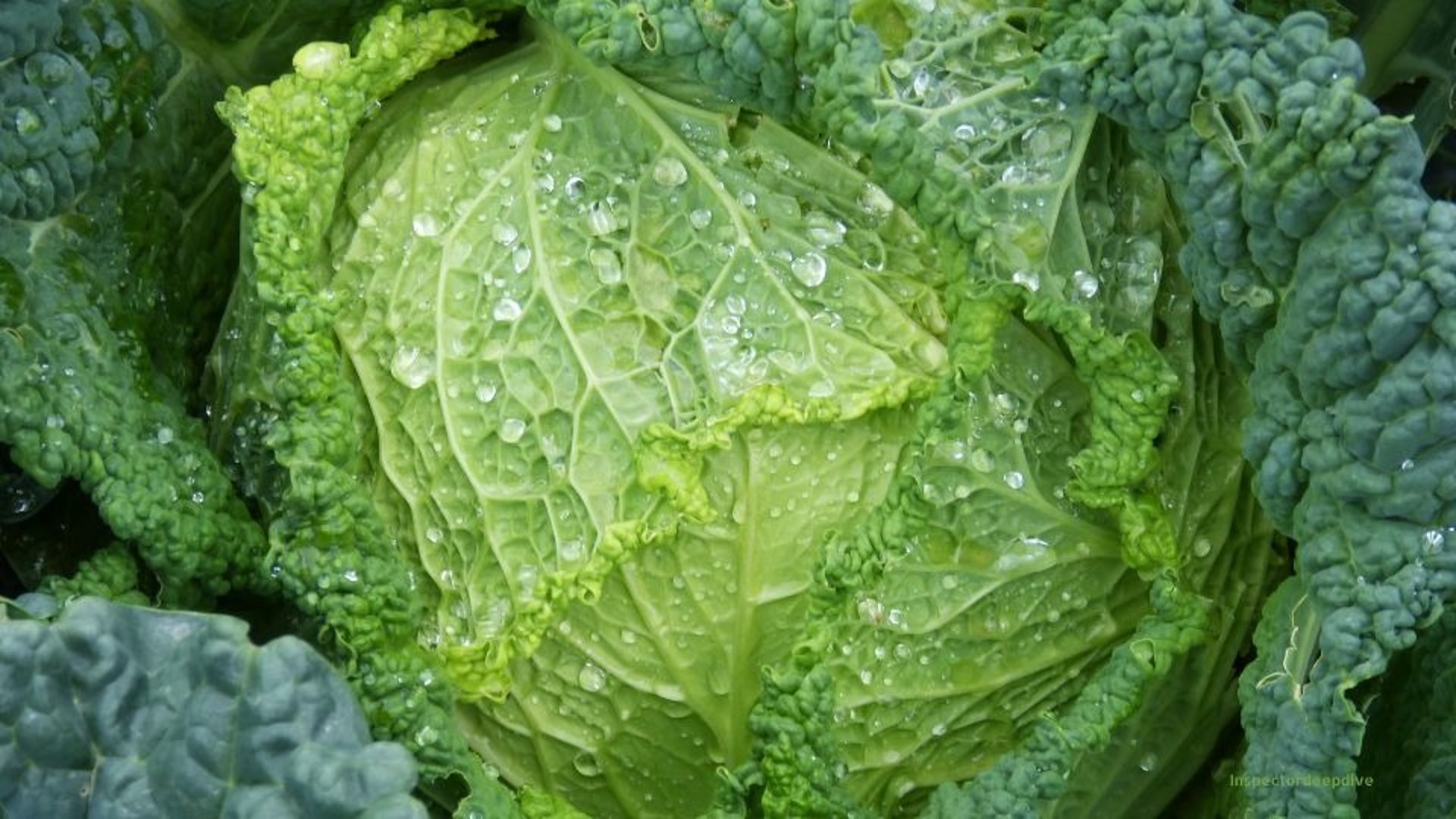
Benefits of Cabbage: From Gut Health to Detox Support

Scientific Name: Brassica oleracea var. capitata
Family: Brassicaceae
What Is Cabbage?
Cabbage is a leafy cruciferous vegetable known for its dense, layered head and crisp texture. It comes in green, red, and savoy varieties and is widely used in cuisines around the world, both raw and cooked. Rich in antioxidants and fiber, cabbage supports digestion, immunity, and overall cellular health.
Where Does It Come From?
Cabbage originated in the Mediterranean region and was later cultivated throughout Europe. It has been grown for thousands of years and is a staple in many cultures, especially in Eastern Europe, Asia, and Russia. It thrives in cool climates and is often fermented into popular dishes like sauerkraut and kimchi.
How Many Varieties?
There are several main types of cabbage, including green cabbage, red cabbage, savoy cabbage, napa cabbage, and bok choy. Each varies in color, texture, and flavor but offers similar nutritional benefits with slight differences in density and antioxidant content.
Seasonality & Availability
Cabbage is available year-round due to global farming, but its peak season runs from late fall through early winter. Fresh cabbage is best when firm, crisp, and free of wilted outer leaves.
Benefits of Cabbage
Supports gut health by promoting beneficial bacteria and aiding digestion.
Boosts immunity with vitamin C and antioxidants.
Supports bone strength with vitamin K.
May help reduce inflammation and oxidative stress.
Fermented cabbage enhances probiotic intake and nutrient absorption.
The Anti Factor
Anti-inflammatory: Contains anthocyanins and sulfur compounds that reduce chronic inflammation.
Antioxidant: Rich in vitamin C, glutathione, and polyphenols that neutralize free radicals.
Detoxifying: Supports liver function and natural cleansing processes.
Gut-supporting: Natural fiber and prebiotics promote digestive wellness.
Immune-supporting: Vitamins and plant compounds enhance immune response.
Nutritional Breakdown (per cup cooked, 75g)
Vitamins:
Vitamin K: 67 mcg supports blood clotting and bone strength
Vitamin C: 33 mg boosts immunity and skin health
Folate: 22 mcg supports cell function and pregnancy health
Fiber: 2.2 g promotes digestive health and feeds gut bacteria
Minerals:
Potassium: 170 mg regulates fluid balance and heart function
Calcium: 40 mg contributes to strong bones and teeth
Iron: 0.7 mg assists oxygen transport in the blood
Magnesium: 12 mg involved in energy production and nerve function
Zinc: 0.2 mg supports immune response and tissue repair
Manganese: 0.2 mg plays a role in bone development and antioxidant defense
Copper: 0.1 mg helps with iron absorption and connective tissue integrity
Selenium: Trace amounts supports thyroid function and cellular immunity
Nutrient Composition
Calories: 22 kcal low-energy food with high nutrient density
Water: 68 g supports hydration and cellular function
Protein: 1.3 g provides essential amino acids in small amounts
Total Fat: 0.1 g virtually fat-free
Carbohydrates: 5 g includes natural sugars and fiber
Dietary Fiber: 2.2 g promotes digestive health and satiety
Sugars: 2.2 g naturally occurring glucose and fructose
What Cabbage Does for Your Body
Cabbage protects your cells with antioxidants that fight damage and supports healthy digestion by providing fiber. It helps your blood clot properly and strengthens your bones thanks to vitamin K. Compounds like glutathione and sulforaphane assist your body in detoxifying harmful substances. When fermented, cabbage adds good bacteria to your gut, boosting digestion and strengthening your immune system.
Surprising Truths
Red cabbage contains more antioxidants than green cabbage.
Sauerkraut is naturally rich in probiotics and digestive enzymes.
Cabbage can interfere with iodine absorption if eaten raw in large amounts.
Historically, cabbage was used as a medicinal food for digestive and skin issues.
Shredding or chopping cabbage increases the release of protective plant compounds.
Environmental Impact
Cabbage requires moderate water and land use. It is typically grown in temperate zones with relatively low environmental impact. Organic and regenerative farming methods further reduce chemical inputs and soil depletion.
Storage & Shelf Life
Fresh cabbage can be stored in the refrigerator for up to two weeks.
Cut cabbage should be wrapped tightly and used within 3–4 days.
Fermented cabbage like sauerkraut keeps for months when refrigerated and stored properly.
Chef or Culinary Tips
Use shredded raw cabbage in coleslaw or salads.
Roast wedges with olive oil and garlic for deeper flavor.
Use whole leaves for wraps or stuffed rolls.
Ferment cabbage to enhance probiotic content and shelf life.
Recipes or Meal Ideas
Classic coleslaw with apple cider vinegar dressing
Sautéed cabbage with garlic and thyme
Cabbage and lentil stew
Kimchi or sauerkraut served at room temperature
Stuffed cabbage rolls with ground beef and rice
Science Behind Cabbage
Cabbage contains glucosinolates that convert into bioactive compounds like sulforaphane and indole-3-carbinol. These compounds support liver detox pathways, reduce oxidative stress, and exhibit anti-cancer properties. Its high fiber and polyphenols also encourage a healthy gut microbiome.
Scientific Breakthroughs As Of 2025
Fermented cabbage significantly improves gut barrier function and microbial diversity.
New cultivars with enhanced anthocyanin content offer better brain and cardiovascular protection.
Cabbage extracts may help regulate blood sugar levels in individuals with metabolic syndrome.
FAQs
Why does cabbage cause gas?
Natural FODMAPs and fiber ferment in the gut, causing gas.
Can you eat cabbage every day?
Yes, in balanced amounts.
Is cabbage good for weight loss?
Yes, it’s low in calories and filling.
Does cabbage interact with medications?
It may affect blood thinners due to vitamin K content.
Is raw or cooked cabbage healthier?
Both offer benefits raw preserves enzymes, cooked enhances mineral availability.
Benefits of Cabbage: From Gut Health to Detox Support
info@inspectordeepdive.com
© 2025 food.InspectorDeepDive.com. All rights reserved. Content may not be copied or republished without permission.
This article is for informational purposes only. InspectorDeepDive.com does not provide medical advice. Always consult a licensed healthcare provider before making dietary or health decisions.
